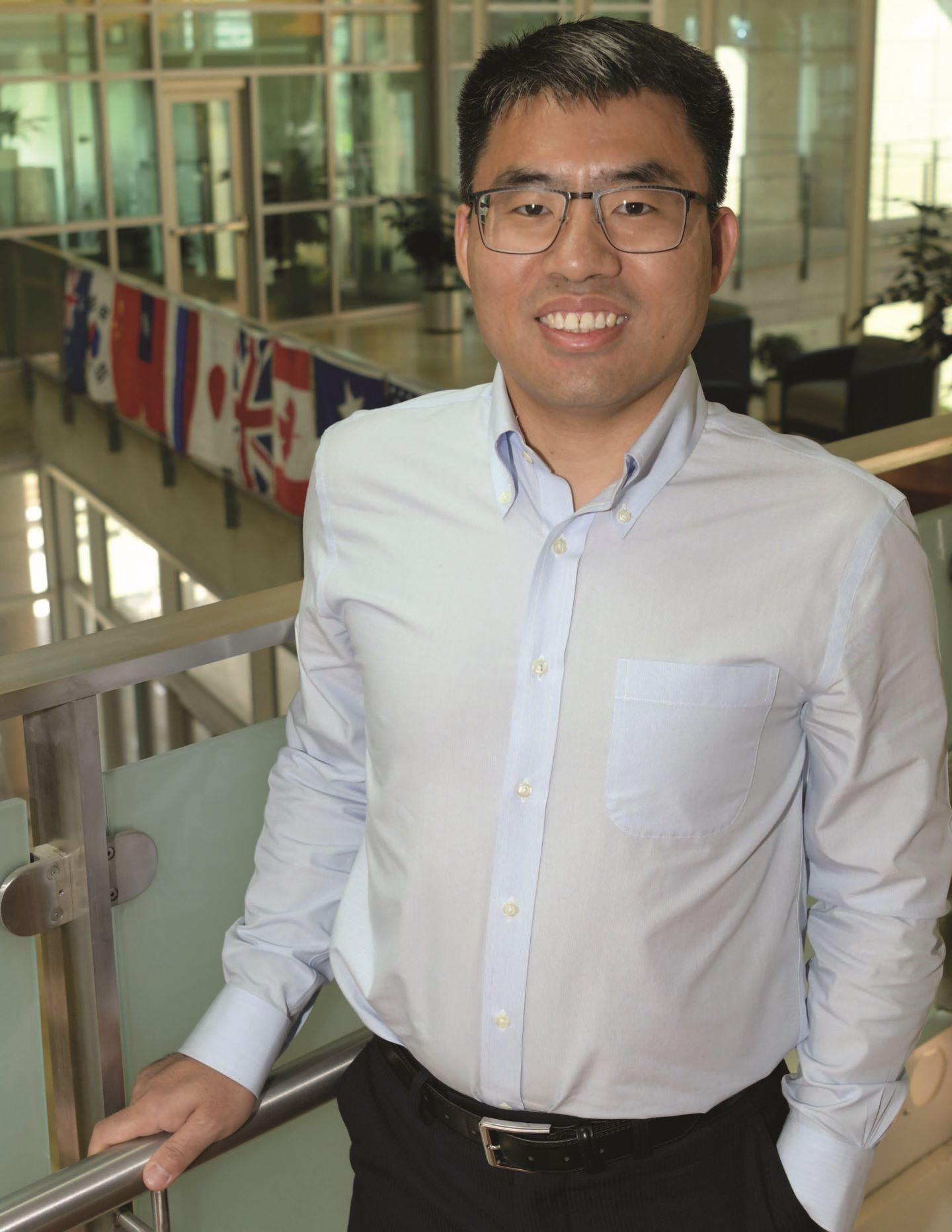BUILDING ON COLLABORATIONS TO BETTER UNDERSTAND CANCER

Dr. Xiangdong Lyu joins the Center for Translational Cancer Research as a tenure-track assistant professor.
A new face in the IMM’s Center for Translational Cancer Research is Xiangdong Lyu, PhD, who recently joined the institute as a tenure-track assistant professor and CPRIT scholar in cancer research from The University of Texas MD Anderson Cancer Center. “My training background and research interest is perfectly matched with the IMM and complements the established program in the center,” he said, adding that he is looking forward to the IMM’s research synergies.
Investigating the molecular mechanisms that promote cancer-therapy resistance, Lyu said his goal is to develop mechanism-based combination therapies to overcome cancer treatment resistance and to prevent tumor recurrence. Lyu primarily focuses on KRAS, one of the most frequently mutated genes in human cancers. “About 90 percent of pancreatic cancers, 30 percent of lung cancers, and 40 percent of colon cancers are driven by oncogenic KRAS,” he explained. Decades’ worth of work on KRAS is showing progress, he said. “There are two drugs approved by the FDA that block the activity of specific KRAS alterations for the treatment of lung cancer and colorectal cancer,” he explained. “So, this is really a breakthrough and shows promise.” Additional KRAS blockers are in clinical development, he added.
Unfortunately, Lyu said, patients usually develop resistance to the KRAS-targeting drugs and eventually succumb to tumor relapse. Using multiple preclinical animal models that faithfully mimic the human cancers, Lyu and his colleagues investigate what drives treatment resistance and tumor recurrence. “Understanding how tumors develop resistance to KRAS drugs and the creation of new drugs to overcome such resistance are clearly major medical needs,” he said.
His work revealed that a biological process called proteostasis (protein homeostasis) reprogramming is crucial for resistance development of KRAS-targeting drugs. “And I further identified that a gene called IRE1 is key to this reprogramming,” he said, adding that blocking IRE1 RNase activity with ORIN1001, with demonstrated safety and tolerability in phase I clinical trial (NCT03950570), led to the collapse of reestablished proteostasis and resistance to KRAS drugs in the majority of preclinical models of lung and pancreatic cancers tested. Lyu said that he does not expect all KRAS inhibitor resistant models/patients to respond to the IRE1 targeting strategy. He is now turning to other key nodes of the proteostasis regulatory network crucial for drug resistance.
“My independent laboratory at IMM will focus on decoding the biological function and molecular basis of proteostasis network and its reprogramming in response to KRAS and related therapy,” he said. “By investigating the molecular and cellular mechanisms that promote therapy resistance, our overarching goal is to develop novel mechanism-based combination therapy to overcome cancer-therapy resistance and prevent tumor recurrence.” Lyu said he is looking forward to collaboration with established IMM investigators, including Drs. John Hancock, Alex Gorfe, Qingyun “Jim” Liu, and Julie Rowe.
